Please add image or text logo

Read our latest round-up of news, top tips and ideas to make the most of your garden this winter!
With the festive season in full swing, December is often one of the quietest months in the garden, but Earnshaws are far from hibernation.
Christmas trees will be available from the 29th of November, our animal and bird care ranges are fully stocked, shovels, de-icers and rock salt are available, and our firewood and fuels are ready for collection or delivery.

Keeping your garden maintained during the winter will ensure it is well prepared for spring and summer, so here are some important garden jobs for December:
• Clear faded perennials – This job should be left until as late as possible in December. If you can, leave the debris in a pile in a quiet part of your garden as a place for insects to stay.
• Winter pruning – While many plants benefit from pruning, it’s important to do so at the right time of year. During December, much of the garden is dormant, and roses, deciduous shrubs, grapevines, wisteria, fruit bushes, and deciduous ornamental trees all benefit from being cut back and trained. Be sure to use a pair of sharp secatuers.
• Plant bulbs – Plant any remaining spring bulbs in pots and gaps in borders, ensuring the holes are three times as deep as the bulbs. Tulips, daffodils and grape hyacinths can all be planted now.
• Create beautiful hanging baskets – Winter pansies, trailing ivy, and primroses can all be planted in hanging baskets to create colourful displays around your garden.
• Add netting where necessary – Protect your winter crops, such as kale, from birds by covering them with netting.
• Keep lawns leaf-free – Grass needs as much light as possible and good air circulation at this time of year. Therefore, regularly raking lawns to remove leaves will keep the grass in much better condition.
• Plant trees and shrubs – October to April is the best time for planting trees and shrubs. Dig a hole that is no deeper than the roots but three times the diameter. Soak bare root trees or shrubs for about 30 minutes before planting.
Visit either of our centres to pick up essential gardening tools!

At Earnshaws, we know our timber and have been cutting firewood since 1860, so you can trust us to help you keep warm over the festive period – both our centres stock ready to burn, kiln-dried firewood logs and smokeless coal!
Stock up now and take advantage of our three hot offers on firewood – available from Brigg and Midgley. Call now to arrange your delivery*!
Our centres also stock everything from kindling and firelighters to a fantastic range of stylish contemporary and traditional fireside accessories, including pokers, shovels, log baskets and coal scuttles – many make perfect gifts for yourself or a loved one!
Discover our full firewood range here.
Click here to view our helpful guide on choosing the right firewood logs for you.
*to our normal delivery zones

In recent weeks you may have noticed that we have carried out some tree work along the roadsides around Midgley and along Denby Dale Road. We thought you might be interested to hear the reason for the work and a little more about how we positively manage woodlands in the area.
Read more here.
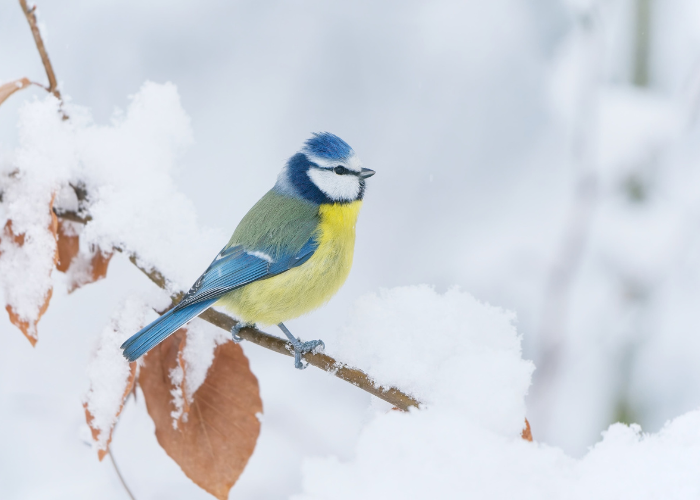
Winter is an especially tough season for birds, so feeding our feathered friends over the colder months is essential to help them survive through frosty spells.
Here are some of our top birdcare tips for the winter months:
• Clean bird boxes – December is the perfect time to clean out and sterilise bird boxes in preparation for nesting throughout the springtime.
• Fill up your bird feeders and tables – Keep bird feeders and tables filled with a variety of seed and nuts placed throughout your garden. They should ideally be placed in sheltered areas close to bushes and trees, to encourage birds to land.
• Provide accessible water sources – As the temperature drops and water freezes, it is harder for birds to find sources of water. Keep checking your bird baths, ponds, and other water sources to ensure the birds in your garden have access to fresh water.
• Add berries to your garden – Plant bushes, trees and shrubs that produce berries throughout the winter months to provide an extra source of sustenance.
• Create a log pile – Some bird species enjoy foraging through piles of logs and leaves for insects to eat.
• Utilise tree trunks – Rubbing fat into the bark of a tree’s trunk can provide a much-needed boost of energy to species that forage around the trunk of trees, such as goldcrests and treecreepers.
• Save shedding dog hair – When grooming your dog, save the fur that comes away and place it into a nesting material dispenser. These can be made from old peanut feeders.
Our centres stock a range of timber bird tables, bird boxes, feeders and RSPB-approved feed.

The Yorkshire Wildlife Trust are holding their very first Robin Festival this winter!
Join the festivities at Potteric Carr Nature Reserve in Doncaster on Saturday 6th and Sunday 7th December to celebrate the wonders of wildlife in the company of one of Britain’s best-loved birds.
The festival is the ideal place to learn how to make your garden a welcoming haven for robins and other feathered visitors during winter and beyond.
Find out more here.
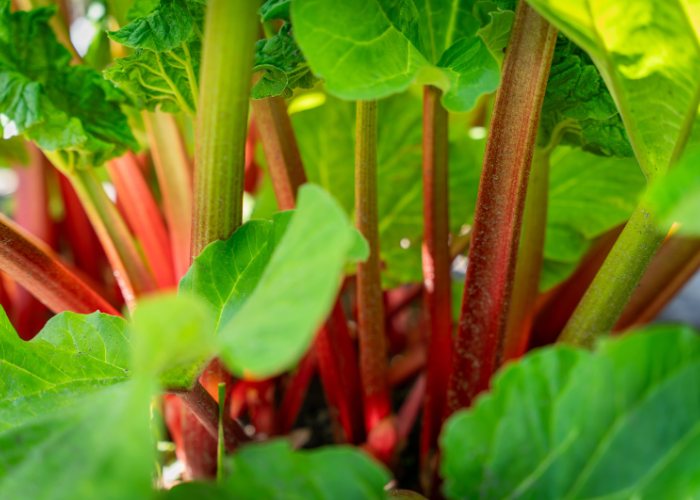
• Garlic – Plant garlic now for it to be ready in July. Ideally, select a hardy variety that is suited to the British climate, such as ‘Solent Wight’. Split the garlic bulbs into cloves and plant in a sunny area with free-draining soil, 20cm apart and 10cm deep.
• Cabbages – Sow cabbage seeds in modular trays indoors, before planting outdoors in spring, choosing a sunny spot.
• Rhubarb – Find a sunny spot with good drainage to plant rhubarb outside, as it will rot if kept in an area that is waterlogged.
• Onions – Sow onions indoors, before planting outside in February.
• Broad beans – Sow indoors until March, then plant outside in free-draining soil, with plenty of garden compost or manure dug in.

We spend most of the year helping you to enhance your outdoor space – but during Christmas, we bring the greenery indoors!
Make one of our locally grown, freshly cut trees the star of the show this festive season. Each tree is netted for easy transport! Take a look at our helpful infographic to decide whether a Nordmann Fir or Norway Spruce is the tree for you.
Our Midgley centre will also have a number of gifts for gardeners for sale, and the Little Acorn will be serving up some delicious seasonal treats!

Make sure you measure the space you’re planning to put your tree before you visit us. Once you have found the perfect fit for your home, we recommend following out top tips to ensure your tree survives as long as possible:
• Hydration is key – Your tree will last longer with water, so we advise sawing 5cm off the base and leaving it outside in a bucket of water overnight.
• What to do once inside – Use a stand that holds water and keep it topped up throughout Christmas. To keep the tree away from direct heat, make sure you choose a spot that is not close to radiators and open fires.
• After Christmas – You can drop your tree off at your local recycling centre. Alternatively, turn your tree into useful mulch by breaking off smaller branches and adding to your compost heap to decompose.
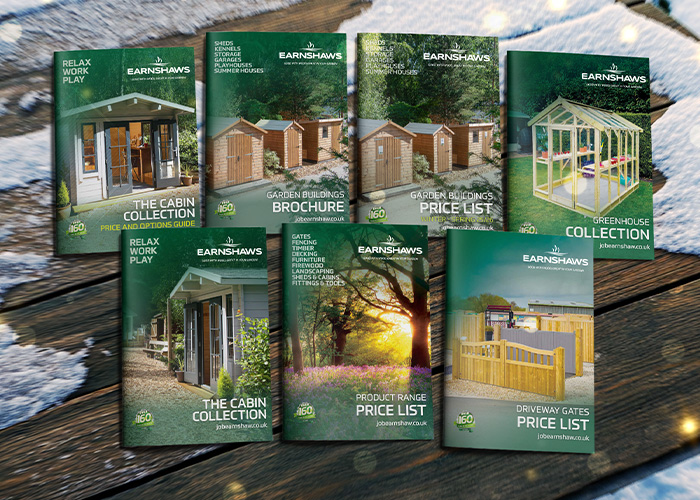
Did you know that all our price lists are available to download on our website?
Our price lists offer a clear and comprehensive overview of our full range of high-quality garden and landscaping products – from gates, fencing, outdoor furniture, and firewood to cabins, sheds, summerhouses, playhouses, and storage solutions.
Download copies of our most recent price lists and product brochures here!
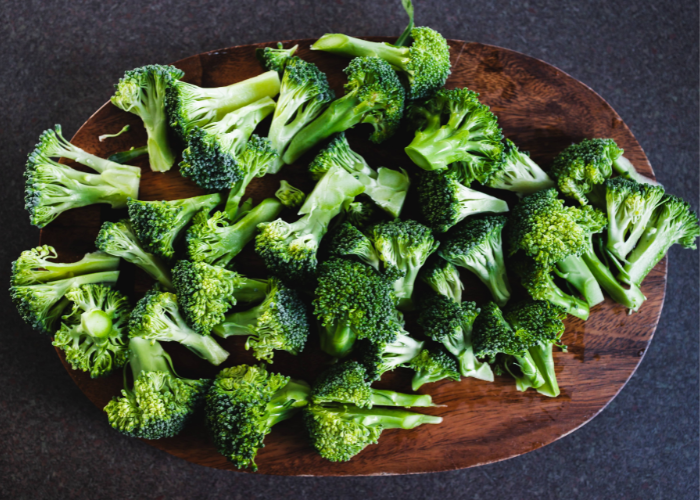
• Broccoli – Cut the main heads of broccoli now, to allow the plant to produce smaller heads. Using a sharp pair of secateurs will stimulate the production of sideshoots, allowing another month or so worth of harvest. Remove damaged leaves to improve air circulation.
• Mustard greens – Many varieties of mustard greens will be ready to harvest as baby greens after 20-30 days. However, to harvest mature mustard greens, pull of the outermost leaves without damaging the growing point, and enjoy many more weeks of harvest.
• Cabbages – Cabbages can be harvested as well as sown this month. Generally taking between 4 and 6 months to reach maturity, harvest winter cabbages once they have formed a firm head, cutting the stem just above ground level.
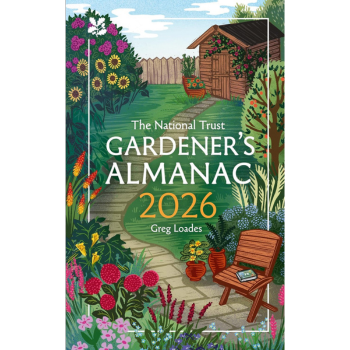
The National Trust Gardener’s Almanac 2026 by Greg Loades
Packed with new features and advice, the 2026 edition of this guide is a perfect gift for any gardener. Month by month, there’s timely gardening advice and information from the National Trust, together with inspiring writing and beautiful illustrations.
Available from Amazon here.
“In cold December fragrant chaplets blow, and heavy harvests nod beneath the snow.”
– Alexander Pope